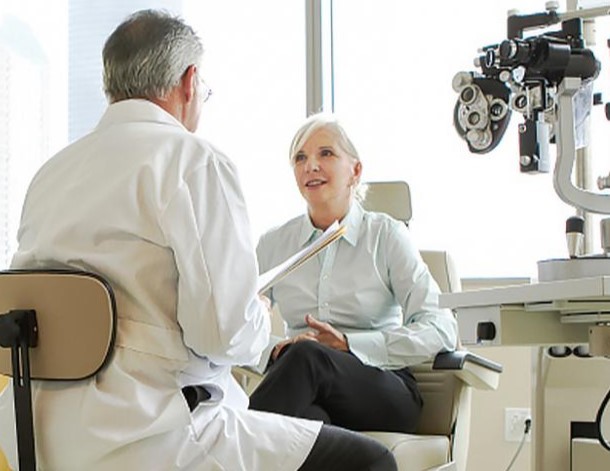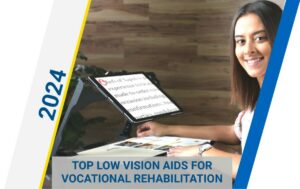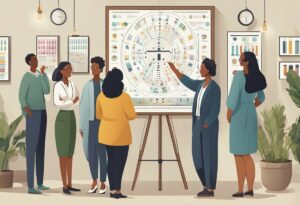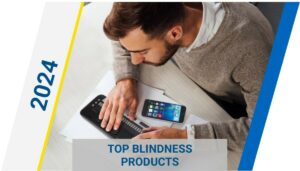Why Are Visits to the Eye Doctor Important?

I recently wrote an article about a conversation I had with a group of my friends. It was surprising to me to hear that they don’t see an optometrist annually.
This was a foreign concept to me, as I visit some form of an eye doctor twice a year at a minimum. In that article, titled Dear World, Please Go See An Eye Doctor, I explain the importance of all people visiting an optometrist annually, even if they don’t have a prescription or need corrective lenses.
Eye doctors 101
Something specific that one of my girlfriends said during this conversation really got me thinking. She said, “I don’t even know how to go see an eye doctor if there’s nothing wrong with my vision, wouldn’t I need a referral?”
At that moment, I realized that just because I see an eye doctor frequently doesn’t mean I can expect everyone to know why they should do the same. Or even how to go about doing so. If you have had recent vision changes and are awaiting an upcoming appointment, but are unsure of what to expect, this article is for you!
Eye doctors are more formally known as optometrists, opticians, and ophthalmologists. All of these doctors can examine our eyes, give prescriptions for corrective lenses, diagnose, and treat patients. Ophthalmologists are slightly different because they’re also able to perform necessary surgical procedures.
Annual appointments are imperative to eye health
I personally see an optometrist for vision changes and quick health checks. I leave my surgeries up to my retina specialist, but we each get to decide the type of doctor we think is best for our unique situations.
What does insurance cover?
Before making an appointment to see an eye doctor, you may want to look into vision insurance first. You may also be interested in knowing that generally, appointments for a retina specialist are covered under medical insurance and not vision insurance.
Scheduling appointments
If you’re unsure of which you need, you can contact the doctor’s office you’re interested in visiting and they can help you.
The appointment
Generally, appointments last about thirty minutes unless your eyes need to be dilated. Even then, a second appointment may need to be scheduled because of how busy these doctors truly are. Your doctor will ask you a series of questions about your vision history and life habits, and will then check your vision through a machine called a phoropter. Phoropters look very complicated and alien-like, but they’re non-invasive.
Your eye doctor will purposefully make your vision blurry and will ask you to read letters from far away. They may also shine a bright light into your eyes (which, for me, is the hardest part of these appointments). They may also take photos of the inside of your eye to get a better look at what’s going on inside. These photos are a great tool for keeping track of changes to our eyes over time.
Go prepared
If you have any questions or concerns for your eye doctor, I suggest writing them down along with any medications and supplements you’re taking. They’re sure to ask you questions and if you’re anything like me, you could forget what you wanted to ask once you’re in the spotlight.
Take recommendations seriously
If your eye doctor finds that you may need a more thorough look into your eyes or any problems you may be experiencing, they may refer you to see a retina specialist. It is important to take a referral to a retina specialist seriously. Vision loss due to macular degeneration can be prevented if caught early enough but is irreversible if left untreated.
Visit an eye doctor
If you haven’t been in to see an eye doctor in a long time, please go see one. And, if you have friends or family members who haven’t gone, please urge them to as well. It could save your vision (or theirs), and that is a spectacular thing!
This article was published on July 27, 2021, by MacularDegeneration.net and authored by Andrea JungeKatie Connor. To read the original article, you can visit this link – https://maculardegeneration.net/living/annual-eye-appointments
If you or a loved one has been diagnosed with Macular Degeneration, we have created this 12-section eBook “Now What? – a free resource to help you or loved one who has been diagnosed with Macular Degeneration. <Click here> to access.
About New England Low Vision and Blindness
New England Low Vision and Blindness uniquely brings hope through technology, training, and care. We are a full-service assistive technology rehabilitation training provider. We offer nearly 100% of all major electronic low vision, blindness, and software products, multiple assistive technology showrooms and a team of Vision Technology Rehabilitation Trainers to help anyone who is visually impaired.
We provide ‘patient choice’ showcasing numerous technology options from the world’s most respected suppliers, all in line with one’s individualized budgetary limits and personal, educational, or professional goals. We also provide custom training solutions and troubleshooting support.
Widely known, tested, and trusted throughout New England, our team brings 75+ years of low vision and blindness experience. Our talent, technology, and training offerings are unmatched and highly respected. We are an extremely unique and extraordinary resource for anyone suffering from vision loss in New England. We are here to help.
Through our no-obligation demonstrations – either at one of our conveniently located assistive technology showrooms or in their home, office, or school – clients experience a relaxed 2-hour free personal demonstration of almost 100% of all low vision and blindness technologies available on the market.
To learn more about how we Bring Hope to people who are blind or with low vision, contact a Technology Specialist at New England Low Vision and Blindness please call our toll-free number 888-211-6933 or email us at info@nelowvision.com.



